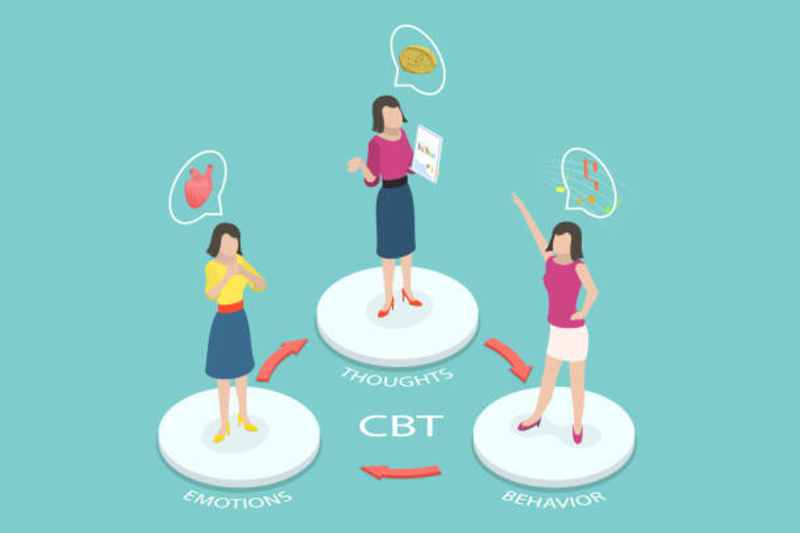Autism is a neurological disorder that affects individuals in various ways. While it is most commonly known for its effects on children, adults can also suffer from autism spectrum disorder (ASD).
While the symptoms and diagnostic criteria may vary compared to younger people with ASD, they remain very real difficulties faced by individuals of any age.
This post will break down signs, symptoms, and general diagnosis guidelines for adults suffering from autism to help professionals recognize this condition and provide the care their patients need.
What is autism and what are the signs and symptoms in adults?
Autism is a developmental disorder that affects:
- communication,
- social interaction,
- behavior,
Although it is typically diagnosed in childhood, some adults may not receive a diagnosis until later in life.
Signs and symptoms of autism in adults can vary widely, but may include:
- difficulty with social interactions,
- repetitive behaviors or routines,
- sensitivity to sensory stimuli,
- difficulty with verbal and nonverbal communication,
Adults with autism may also struggle with executive functioning, such as managing time or organizing tasks. Recognizing the signs of autism in adults can be a challenge, but obtaining a diagnosis can provide a greater understanding and access to resources that can improve overall quality of life.

Diagnosing autism in adults:
Autism is a complex disorder that affects people across the spectrum. While it is often diagnosed in childhood, there is a growing awareness that many people can continue to struggle with undiagnosed autism well into adulthood.
The process of diagnosis can be challenging, as symptoms can present differently depending on the individual. It involves a comprehensive evaluation by a specialist and typically involves:
- interviews,
- observations,
- tests,
The specialist will consider a range of factors, including:
- social and communication skills,
- behavior,
- interests,
to make an accurate diagnosis. Understanding the process of diagnosis is an important step for adults who suspect they may have autism, as it can lead to a better understanding of themselves and more personalized treatment options.
Challenges faced by adults with autism:
For many adults with autism, navigating everyday life can present unique challenges. Difficulty with social interaction and communication can make it hard to form and maintain relationships, both personal and professional.
Sensory sensitivity can make certain environments overwhelming or intolerable, making participation in common activities like going to a movie or attending a sporting event nearly impossible.
Many adults on the spectrum also struggle with executive functioning, making tasks like organizing, prioritizing, and managing time much more challenging.
Despite these hurdles, many adults with autism are finding ways to thrive and successfully navigate the world around them.
Support for adults with autism:
For adults with autism, accessing support and resources can be a daunting task. However, it is important to remember that there are many available options for those seeking help.
One way to start is by contacting your local autism society or community center, as they often have information on available resources. It can also be helpful to reach out to support groups and online communities to connect with others who understand and have experienced similar challenges.
Many healthcare providers, such as therapists and psychiatrists, also specialize in working with adults with autism and can offer assistance.
Remember, seeking help is a courageous and important step on your journey, and there are people and resources available to support you.
Coping mechanisms for managing anxiety and stress related to autism:
Living with autism can be challenging, especially for individuals who struggle with anxiety and stress. Finding healthy coping mechanisms is essential for managing these emotions.
There are various stress reducing techniques such as:
- deep breathing,
- progressive muscle relaxation,
- mindfulness practices,
that can help calm the mind and body. Engaging in physical activities, connecting with nature, and spending time with supportive individuals can also be effective ways to alleviate anxiety and stress related to autism.
Identifying and utilizing coping mechanisms that work best for each individual can make a significant difference in maintaining a positive outlook and managing emotions.
With the right tools and strategies, it is possible to live a fulfilling and balanced life as a person with autism.
Cognitive Behavioral Therapy (CBT):

Autism Spectrum Disorder (ASD) is a complex neurological condition that affects individuals from a young age. It can impact:
- communication skills,
- social interaction,
- behavior patterns,
making day-to-day life challenging for those who have it and their families. While there are different forms of treatment available for ASD, Cognitive Behavioral Therapy (CBT) has been gaining recognition as an effective method to manage its symptoms. Studies have shown that CBT can help individuals with ASD develop coping mechanisms and improve their social skills, resulting in a better quality of life for both the individual and their loved ones.
By addressing the cognitive and behavioral aspects of ASD, CBT has proven to be a valuable tool in helping individuals with the condition lead a fulfilling life.
Conclusion:
It is clear that adults with autism face many unique challenges not faced by typical adults. However, with the right support and help, these individuals can live full and happy lives. Cognitive Behavioral Therapy (CBT) has been identified as a helpful treatment for ASD, providing patients with coping strategies to deal with anxiety and stress related to their condition. Furthermore, family members, friends, doctors, and healthcare professionals all play an important role in helping those with autism through their journey. With proper diagnosis and support these individuals can gain a better understanding of their condition and how to effectively manage it on a daily basis.
FAQs:
Can autistic people be aware of their condition?
Yes, many adults with autism are aware of their condition and can identify its symptoms. With the help of a specialist and appropriate resources, these individuals can gain a better understanding of themselves and access personalized treatment options.
How do autistic adults behave?
Autistic adults can present with a range of behaviors, depending on the individual. Generally speaking, those with autism may struggle in social situations and have difficulty communicating, as well as demonstrate mood swings and sensory sensitivity.
How do autistic adults express love?
Autistic adults express love in many different ways, just like anyone else. Some may not verbalize their feelings or be comfortable with physical displays of affection, but can show care and appreciation through little acts such as doing chores, buying thoughtful gifts, or simply being there for the other person.




